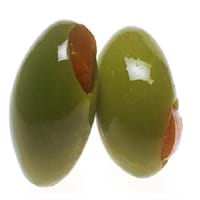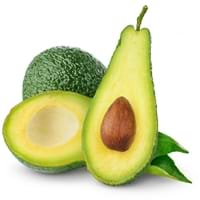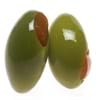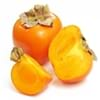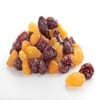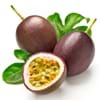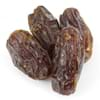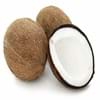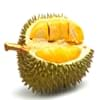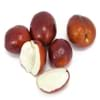Health Benefits
Cancer prevention, Helps in cartilage regeneration, Prevents macular degeneration, Treatment of alzheimer's disease
Cancer prevention, Natural detoxification, Osteoporosis prevention, Protection from chronic disease
General Benefits
Anti oxidant properties, Anti-inflammatory properties, Boosts immune system, Controls blood pressure, Digestive aid, Maintains healthy cholesterol level
Boosts immune system, Controls blood pressure, Digestive aid, Improves eye vision, Maintains healthy cholesterol level
Skin Benefits
Hydrates skin, Skin rejuvenation, Treatment of skin diseases
Brightens and lightens complexion, Reduces wrinkles, Skin cleansing, Treatment of dark spots
Hair Benefits
Acts as moisturizer, Good conditioner, Regulates hair growth
Acts as moisturizer, Good conditioner, Protects hair, Regulates hair growth, Rejuvenates scalp, Remedy for split ends, Shiny hair, Softening mask
Allergy Symptoms
NA
Abdominal pains, Anaphylaxis, Inflammation, Itching, Latex Allergy, Nasal congestion, Skin Rashes, Swallowing difficulties, Swelling, Upset stomach, Vomiting, Wheezing
Side Effects
Affects blood glucose levels, Dizziness, Stomach pain
Allergic reaction, Hypersensitivity, Weight gain
Best Time to Eat
Hardly eaten raw, Olive oil is consumed for many purposes.
Along with meal, As a snack in the late afternoon, Don't consume at night and before bed, Don't eat after meal
Vitamin B5 (Pantothenic Acid)
Vitamin C (Ascorbic Acid)
Vitamin K (Phyllochinone)
Phytosterol
Not Available
Calories in Fresh Fruit with Peel
Calories in Fresh Fruit without Peel
Not Available
Not Available
Calories in Frozen Form
Not Available
Calories in Canned Form
Not Available
Type
Tree fruit
Berry, Tree fruit, Tropical
Season
Spring, Summer
Summer
Varieties
Manzanillo, Sevillano, Mission, Ascolano, Barouni, Gordal, Rubra and Picholine
Bacon, Fuerte, Gwen, Hass, Lamb Hass, Pinkerton, Reed and Zutano
Color
Black, Green, Purple, Yellow
Dark green
Origin
Eastern Mediterranean Region
Mexico, Central America
Soil Type
Well-drained
Decomposed Granite, Limestone, Sandy loam, Well-aerated
Climatic Conditions
Warm to hot climate
Humid, Without frosts
Facts about
- In ancient Greece, 1st eye shadow was made by adding olive oil in ground charcoal.
- The most expensive form of olive oil is Extra Virgin.
- Largest type of olive tree is known as donkey tree & smallest one is called bullet.
- The oldest living avocado tree is found in University of California and was planted in 1879.
- Avocados can be swapped for butter in Baked Goods Recipes.
- Avocado ripens more quickly with a banana or an apple around.
Top Producer
Spain
Mexico
Other Countries
Algeria, Egypt, Greece, Italy, Morocco, Portugal, Syria, Tunisia, Turkey
Chile, China, Colombia, Dominican Republic, Indonesia, Kenya, Mexico, Peru, Rwanda, United States of America
Top Importer
United States of America
United States of America
Top Exporter
Italy
Mexico
Botanical Name
Olea europaea
Persea Americana
Synonym
Not Available
Persea Gratissima
Subkingdom
Tracheobionta
Tracheobionta
Division
Magnoliophyta
Magnoliophyta
Class
Magnoliopsida
Magnoliopsida
Subclass
Rosidae
Magnollidae
Family
Oleaceae
Lauraceae
Species
O. europaea
P. Americana
Generic Group
Olive
Laurel
Difference Between Olive and Avocado
We might think that Olive and Avocado are similar with respect to nutritional value and health benefits. But the nutrient content of both fruits is different. Olive and Avocado Facts such as their taste, shape, color, and size are also distinct. The difference between Olive and Avocado is explained here.
The amount of calories in 100 gm of fresh Olive and Avocado with peel is 115.00 kcal and 160.00 kcal and the amount of calories without peel is Not Available and Not Available respectively. Thus, Olive and Avocado belong to and category.These fruits might or might not differ with respect to their scientific classification. The order of Olive and Avocado is Lamiales and Laurales respectively. Olive belongs to Oleaceae family and Avocado belongs to Lauraceae family. Olive belongs to Olea genus of O. europaea species and Avocado belongs to Persea genus of P. Americana species. Beings plants, both fruits belong to Plantae Kingdom.
